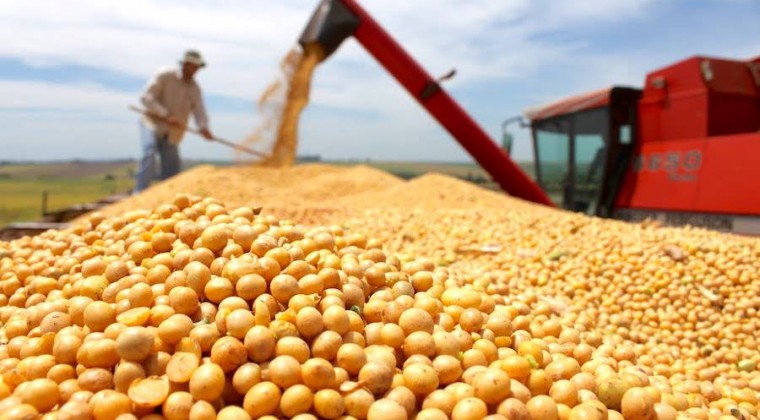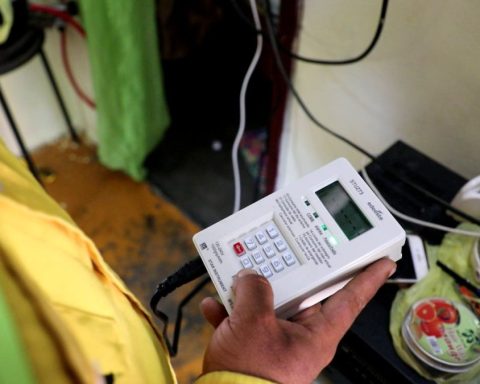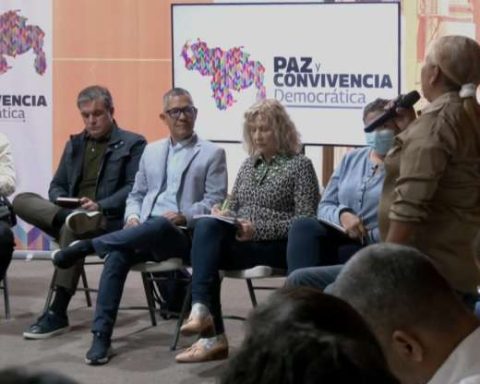The Paraguayan Chamber of Oilseed and Grain Processors (CAPPRO) considers that, despite the significant improvement in the soybean harvest, the situation of the national oil industry will not be very different from that experienced in previous years, when even with primary production at record levels, the industrialization of our raw materials maintained a marked downward trend.
Between 2018 and 2021, relatively good years for the field, the average annual soybean production was 9.7 million tons per year (with a peak of 10.6 million and a floor of 8.8 million tons), while in the same period the average processing reached just 3.2 million tons. Specifically, in the last 4 years, only 33% of the soy produced is industrialized in the country.
Beyond these values, the negative trend shown by industrialization is very impressive, which in 2022 closed his fourth year in a row with a year-on-year drop in milling and that before this period (between 2015 and 2018) it was already at a plateau, well below the actual processing capacity, which exceeds 4.2 million tons and even further behind. relative to production potential.
In this sense, it should be noted that, despite having grown in relation to the situation at the beginning of the last decade, industrial capacity has decreased in recent years due to the exit of a factory from the market in 2018 due to the constant changes in the rules that affect the competitiveness of the sector.
Even with this reduction and the good harvests that were registered, the idleness of the national oil industry exceeded, on average, one million tons per year between 2019 and 2021; that is, the agro-industries stopped adding value to all this raw material due to a lack of opportunities to compete on equal terms with factories from other countries that take the raw material.
All this context clearly explains why 2022 was the worst year in history for the national oil industry, not necessarily because of the drought that reduced the amount of raw material available, but because this situation occurs in a situation that had already been clearly negative for agro-industries, taking them to the limit and forcing factories to stop early for several months in 2022 due to lack of product to add value to.
RECOVERY?
To assume that simply because the amount of soybean available in the local market increases, the processing of this oilseed will also increase, is to completely ignore the reality of the national oil industry. For To effectively increase industrialization, it is necessary to adopt public policies that provide stability and that allow national agro-industries to compete on an equal footing with factories from other countries. -that they do have certain advantages to acquire raw materials and other incentives to industrialize within their borders- counteracting the disincentive measures that are applied in international trade to industrialized products.
Processing 3 million tons again this 2023, with an idle capacity of more than 1 million tons, will not represent a positive event for the sector, but rather a stagnation in its growth and that of the country.
Argentina, which normally imports almost a third of our soybeans to industrialize it in their country, is expecting a poor harvest this year. Therefore, their demand for Paraguayan soybeans in their natural state will surely increase and put even more pressure on the local industry.
Having a good primary production, both in volume and quality, is important for agro-industries, but, despite having record years in production, unfortunately the processing statistics show that industries already operate with an underutilization of their installed capacity of the order of million tons. This makes it clear that production -although it is an important factor- is only one of the factors that determine the possibility of industrializing more or less in the country.
Without an industrial policy, clear rules that give predictability to investments, measures that equate inequalities with respect to industries in other countries -and even with respect to other industries in our country that do receive VAT refunds associated with their manufacturing operations export-, a sustained fight against smuggling and informality, the navigability of our main rivers guaranteed throughout the year, it is difficult to achieve the consolidation and growth of Paraguayan agro-industries.
You may also like: Pediatricians warn of a dangerous drop in vaccination coverage
LOCAL INCREASE IN THE DEMAND FOR SOY OIL
Currently, there is knowledge of the installation of two new biofuel factories in the country, which would use the soybean oil currently produced by those associated with CAPPRO as their main input, so it is important to support the oil industry if we want them to be able to meet this new demand. It is estimated that one of them could have a demand of almost 400,000 tons of soybean oil per year, while the other would demand approximately 90,000 tons of soybean oil per year.
The industries associated with CAPPRO produced, on average per year between 2019 and 2021, a little less than 650 thousand tons of soybean oil; with which it should aim to improve the conditions of this key link in the chain if it is intended that Paraguay can move towards other types of industries.
TEMPORARY ADMISSION
The industries associated with CAPPRO can process more than 4.2 million tons of oilseeds per year, but the average crushing between 2019 and 2021 (years of good records for agricultural production) is below 3.2 millions of tons; with which, without producing an impact on internal marketing, the possibility of importing raw materials under the Temporary Admission Regime could be implemented indefinitely and by law, as a measure to grant greater competitiveness to industries.
It should be remembered that said regime had been approved in May 2022 through Decree No. 7051/2022, but only temporarily, valid until December 31 of last year, but unfortunately the industries could not import under this regime because the regulation of the decree was completed months later, when the harvest of the countries of the region -where we could have bought from- was already compromised.
It is important to mention that other countries have the temporary admission regime to import raw materials, because they understand that greater industrialization brings substantial benefits for their countries, such as the generation of more and better jobs, higher foreign exchange earnings and revenue, with which which will be able to face more public expenses and investments. Paraguay should not miss out on the growing demand for food and should aim to become a provider of these, adopting public policies that encourage greater use of agricultural raw materials.


















